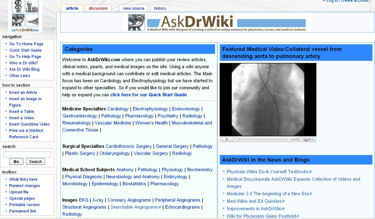FDA updates boxed warnings for rosiglitazone, other drugs
The latest drug alerts and approvals.
Alerts, warnings and recalls
The boxed warning for rosiglitazone (Avandia) was revised to reflect an increased risk of heart attacks. In August, the entire class of thiazolidinediones added boxed warnings saying the drugs may cause or worsen heart failure.

An updated boxed warning says epoetin alfa (Epogen, Procrit) and darbepoetin alfa (Aranesp) caused tumor growth and shortened survival in patients with advanced breast, head and neck, lymphoid and non-small cell lung cancer at doses that aimed for a hemoglobin level of 12 g/dL or more. In cancer patients, the drugs should be used only when treating anemia caused by chemotherapy. For kidney failure patients, the drugs should be used to maintain a hemoglobin level between 10 g/dL to 12 g/dL, as higher levels raise the risk of death and serious cardiovascular reactions.
Eleven deaths spurred boxed warnings for echocardiography contrast agents.
Perflutren Lipid Microsphere Injectable Suspension (Definity) and Perflutren Protein-Type A Microspheres for Injection (Optison). Four died by cardiac arrest that occurred within 30 minutes of drug infusion, while the others died within one to 12 hours. Medical professionals should monitor patients for 30 minutes after infusion, and shouldn't use the drugs in patients with unstable angina, acute myocardial infarction, respiratory failure or recent worsening congestive heart failure.
Antifibrinolytic drug aprotinin injection (Trasylol) was temporarily pulled from the market pending review of study data suggesting an increased risk for death.
Physicians should tell patients taking exenatide (Byetta) for type 2 diabetes to seek immediate care if they have unexplained and persistent severe abdominal pain. At least 30 patients have experienced acute pancreatitis after taking the drug.
Modafinil (Provigil) and armodafinil (Nuvigil) have a new bolded warning due to reports of serious rash, including Stevens-Johnson syndrome, which can lead to hospitalization for infection.
Erectile dysfunction drugs tadalafil (Cialis), vardenafil (Levitra), and sildenafil (Viagra) received label changes to highlight potential risk of sudden hearing loss.
Approvals
Cetirizine and pseudoephedrine (Zyrtec-D), for nonprescription use to treat allergies in anyone age 12 and older. The drug has been available by prescription since 2001.
Agento endotracheal tube, which is coated with silver to prevent ventilator-associated pneumonia in hospitals. A multicenter trial found it reduced the percentage of patients who developed pneumonia from 7.5% to 4.8% when compared to an uncoated tube. It also delayed onset of pneumonia.
Raltegravir (Isentress), the first integrase strand transfer inhibitor, to treat HIV in combination with other antiretroviral drugs. The drug is meant for treatment-experienced adults with evidence of viral replication and with HIV strains that are resistant to multiple antiretroviral drugs.
The first generic versions of anticonvulsant oxcarbazepine (Trileptal) in 150-mg, 300-mg and 600-mg doses. It can be used alone or with other medications to treat partial seizures. Side effects may include serious skin reactions, dizziness and drowsiness.
A 500 mg intravenous infusion of doripenem injection (Doribax) to treat complicated urinary tract and intra-abdominal infections. Multi-center studies show the drug has a cure rate comparable to levofloxacin and meropenem.
Ixabepilone (Ixempra) to treat metastatic or locally advanced breast cancer. It can be used in combination with capecitabine in patients who no longer benefit from two other chemotherapy treatments that included an anthracycline and a taxane; or alone in patients who no longer benefit from an anthracycline, a taxane and capecitabine.
Nilotinib (Tasigna) to treat Philadelphia chromosome positive chronic myeloid leukemia in adults whose disease has progressed or who can't tolerate other therapies that included Imatinib (Gleevec). Nilotinib has a boxed warning for possible life-threatening heart problems that may lead to an irregular heartbeat and sudden death.




